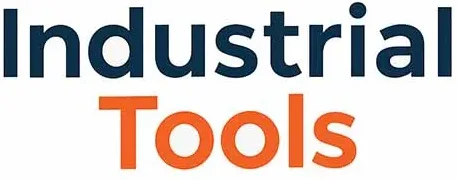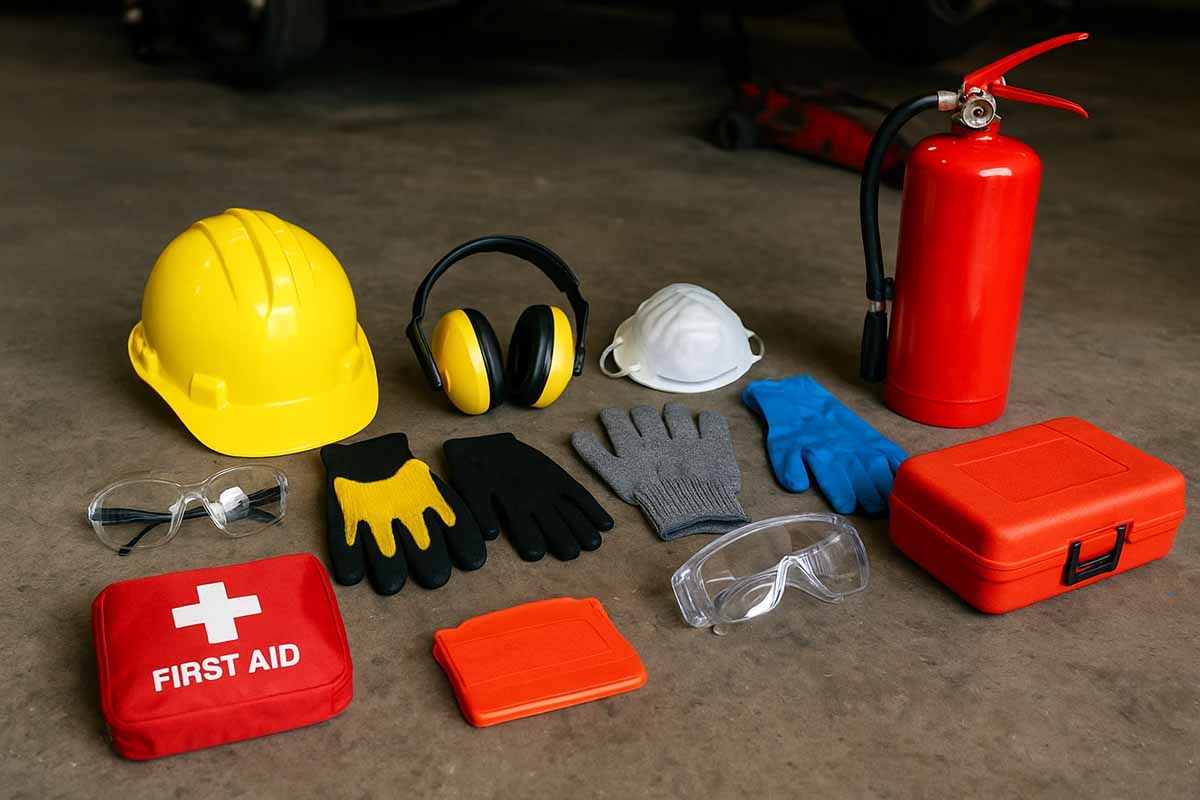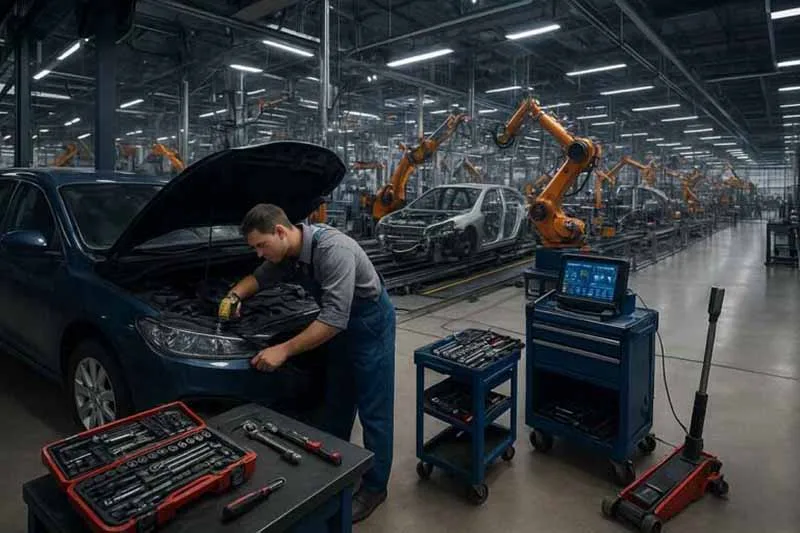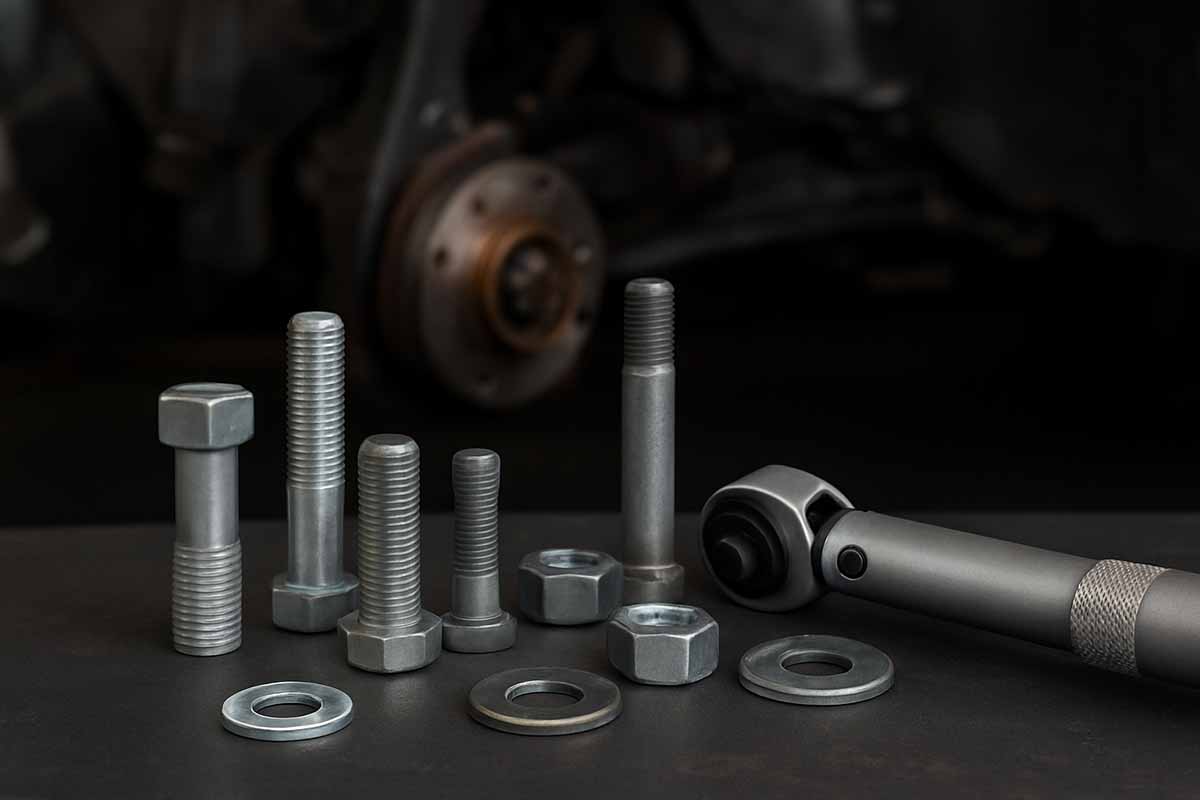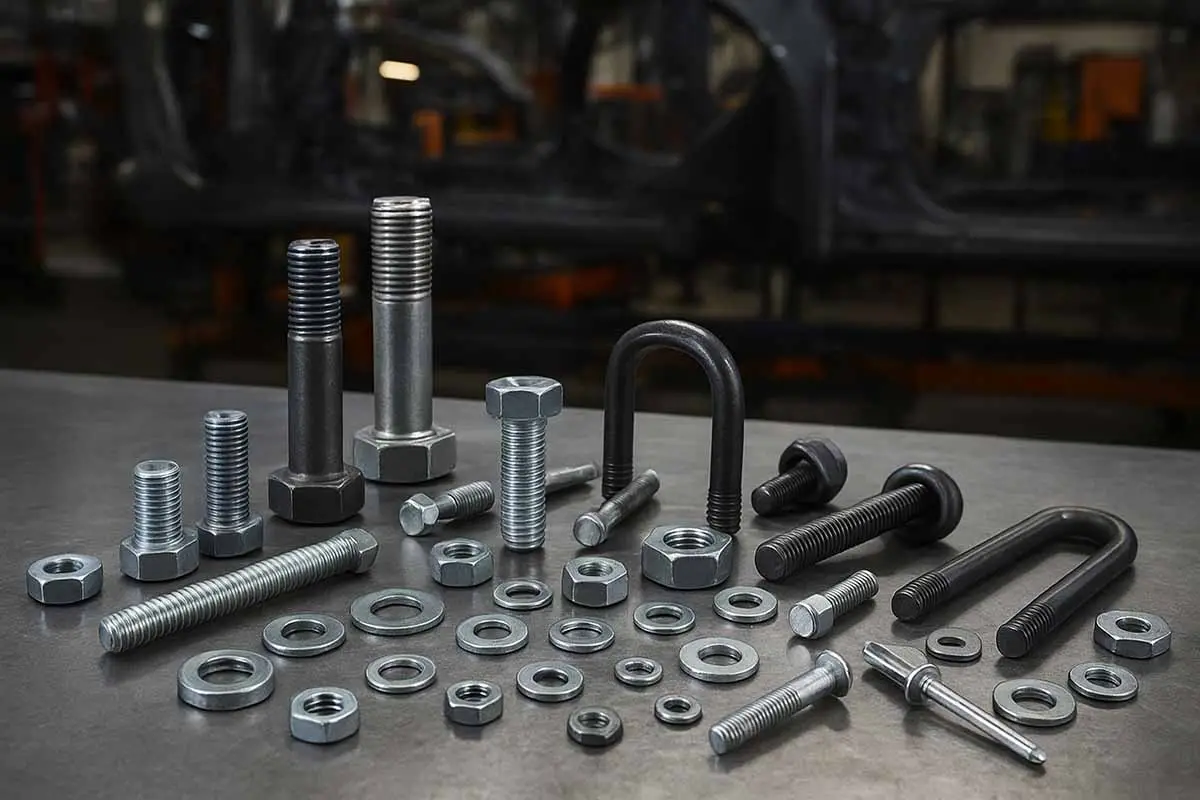Automotive workshops are buzzing with productivity – the hum of air compressors, the clink of wrenches, and the occasional (hopefully polite) curse when a stubborn bolt refuses to budge. But amid all this, safety is non-negotiable.
Working on vehicles exposes mechanics to hazards like sharp metal edges, flying debris, chemical spills, loud noise, and heavy lifting. The right safety tools and personal protective equipment (PPE) don’t just prevent injuries – they keep productivity high and repair bills low (because hospital stays aren’t cheap).
In this guide, we’ll cover the essential PPE and safety tools every automotive workshop should have, along with best practices, maintenance tips, and answers to common questions.
1. Why Safety Matters in Automotive Workshops
According to the U.S. Bureau of Labor Statistics, automotive service technicians and mechanics report thousands of workplace injuries annually – many preventable with proper safety gear. Even minor incidents like metal splinters or oil burns can turn into bigger health issues if ignored.
Key Safety Challenges in Workshops:
- Cuts and abrasions from sharp edges.
- Eye damage from flying debris or sparks.
- Hearing loss from prolonged noise exposure.
- Respiratory problems from dust, fumes, or chemicals.
- Impact injuries from dropped tools or parts.
2. Essential PPE for Automotive Workshops
A. Eye and Face Protection
- Safety Glasses: Must meet ANSI Z87.1 standards.
- Face Shields: For grinding, cutting, and welding tasks.
- Goggles: For chemical handling.
Pro Tip: Keep a spare set of safety glasses near each work area – because someone will misplace theirs.
B. Hand Protection
- Mechanic Gloves: Protect against cuts, burns, and chemicals without sacrificing dexterity.
- Cut-Resistant Gloves: Ideal for working with sharp body panels.
- Chemical-Resistant Gloves: Nitrile or neoprene for handling solvents.
C. Hearing Protection
- Earplugs: Disposable foam plugs for quick tasks.
- Earmuffs: For prolonged exposure to noisy tools like impact wrenches.
Lesser-Known Fact: Even a single day without hearing protection in a loud workshop can cause permanent hearing damage.
D. Respiratory Protection
- Dust Masks: For sanding or light dust exposure.
- Respirators: For paint, welding, and solvent fumes.
- Powered Air-Purifying Respirators (PAPR): For prolonged, high-risk work.
E. Foot Protection
- Steel-Toe Boots: Protection against dropped parts and tools.
- Slip-Resistant Soles: Essential on oily or wet workshop floors.
F. Body Protection
- Coveralls: Flame-resistant, chemical-resistant, or general workwear.
- Aprons: For heavy-duty welding or grinding.
- High-Visibility Clothing: For busy garages and service areas.
3. Safety Tools Beyond PPE
While PPE protects the mechanic, safety tools protect both the worker and the workspace:
- First Aid Kit: Stocked and easily accessible.
- Fire Extinguishers: ABC-rated for electrical, flammable liquids, and solids.
- Emergency Eye Wash Station: For chemical splashes.
- Jack Stands: To prevent vehicle collapse.
- Insulated Tools: For electrical work.
- Lockout/Tagout Kits: For electrical and hydraulic systems.
Interesting Fact: Many professional workshops fail safety audits not because they lack gear, but because their emergency equipment is expired or not maintained.
4. Best Practices for Workshop Safety
- Inspect PPE Regularly: Replace damaged items immediately.
- Train All Staff: Proper use and maintenance of PPE is as important as having it.
- Label Hazards: Keep dangerous areas and equipment clearly marked.
- Maintain Tools: A poorly maintained tool is a safety hazard in disguise.
- Keep Floors Clear: Prevent slips, trips, and falls.
Safety Tools and PPE in Automotive Workshops FAQ
6. Final Thoughts
In an automotive workshop, productivity depends on safety. The right PPE and safety tools not only protect workers but also improve efficiency, reduce downtime, and enhance overall quality of work.
You May Want to Read More About the Automotive Industry
- Industrial Tools in the Automotive Industry
- Digital Twins in Automotive Tooling: Smarter Maintenance, Fewer Breakdowns
- Comparing Pneumatic vs. Electric Tools in Automotive Workshops
- How Industry 4.0 Is Reshaping Automotive Assembly Lines
- Trends in Automotive Manufacturing Automation
- Impact of Industry 4.0 and IoT on Automotive Tooling
- Essential EV Toolkits for Modern Automotive Work
- Reviews of 5 Leading Automotive Tool Brands
- Top Tools for Automotive Repair and Diagnostics
- Specialized Equipment for Engine Rebuilding
- Automotive Fasteners and Torque Specs Explained
- Safety Tools and PPE in Automotive Workshops
- Troubleshooting Common Automotive Tool Problems
- Top Automotive Tool Brands Reviewed
- Fasteners in Automotive Manufacturing: What Makes the Cut?
- How to Use a Torque Wrench in the Automotive Industry
- Automotive Torque Wrench Buying Guide 2025
- Best Smart Tightening Tools for Industrial Assembly (2026 Guide)
Take the FREE course on Safety Tools and PPE in Automotive Workshops here: Safety Tools and PPE in Automotive Workshops
Your Turn:
What’s the most important piece of PPE in your workshop? Share your thoughts and experiences in the comments – and help spread the word by sharing this guide on social media.
